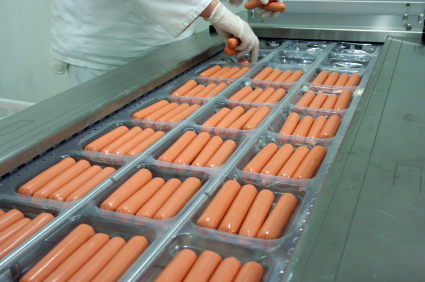As the huge global protest, March Against Monsanto, is set to take place May 25th, CEO Hugh Grant told Bloomberg opponents of his company are capitalizing on increased public concern regarding how genetically modified foods are made, and pushing anti-GMO sentiment through social media sites.
March Against Monsanto activists are protesting, among other things, the serious risks GMO’s pose to both health and the environment, ex-Monsanto executives steering government agencies like the FDA, Monsanto’s monopoly over the world’s food supply, and political favoritism.
Grant says those critics aren’t giving Monsanto the opportunity to feed the world with technological advances.
“I’d feel a whole lot better if it was marinated on a little where is that extra chicken going to come from or who is going to grow the new bushel,” Grant said, adding that, “There is space in the supermarket shelf for all of us.”
Perhaps if Monsanto wasn’t bankrupting small farmers over patent infringement, or suing dairy farmers for labeling their milk Monsanto-produced rBGH-free, critics wouldn’t have to ponder where their next meal will come from.
If Monsanto’s legal practices weren’t enough to enrage America’s agricultural sector, the passing of the so-called “Monsanto Protection Act” certainly has. The Act – co-authored by a senator that received thousands of dollars in campaign contributions from Monsanto – puts GM companies above the law by effectively banning courts from halting the sale, planting, harvest, or distribution of any GM seeds, even if those seeds are linked to illness or environmental problems.
“There is this strange kind of reverse elitism: If I’m going to do this, then everything else shouldn’t exist.” Grant told Bloomberg, saying opponents of Monsanto think there should be conventional agriculture or organic and nothing else.
The irony is that Monsanto pays millions of dollars a year lobbying politicians and funding thinktanks to combat opposition. Ex-Monsanto executives work on their behalf in government positions including the Supreme Court, FDA, EPA and USDA, all the while denying consumers the right to have labels and information regarding genetically modified products.
As if this wasn’t enough to affirm their omnipotent reach, Monsanto is embroiled in controversy yet again after State Department cables from 2005 to 2009 show the government lobbied foreign nations on behalf of the biotech giant.
Food & Water Watch summarized the cables showing how the United States has pursued policies to benefit the largest seed companies, including urging embassies to generate positive media coverage to sway public opinion.
The four goals of biotech diplomacy, according to Food & Water Watch, are to: Promote biotech business interests; Lobby foreign governments to weaken biotech rules; Protect U.S. biotech exports; and Press developing world to adopt biotech crops.
“The seed companies including Monsanto, DuPont, Pioneer, Syngenta, Bayer CropScience, and Dow Agro-chemical, are more commonly mentioned in the biotech cables than food aid.” According to the Food & Water Watch biotech report. “The State Department worked especially hard to promote the interests of Monsanto, the world’s biggest biotech seed company…Monsanto appeared in 6.1 percent of the biotech cables analyzed between 2005 and 2009 from 21 countries.”
Meanwhile, Grant is focused on the growing voices of concerned citizens who refuse to fall in line with government-approved biotech propaganda.
Monsanto has already purchased the approval of Washington to advance their agenda worldwide, yet anti-GMO activists armed only with their Facebook status threaten the endgame?
Well, if those stifled voices are able to unite into one glorious global uproar, Grant’s fears may be validated.
